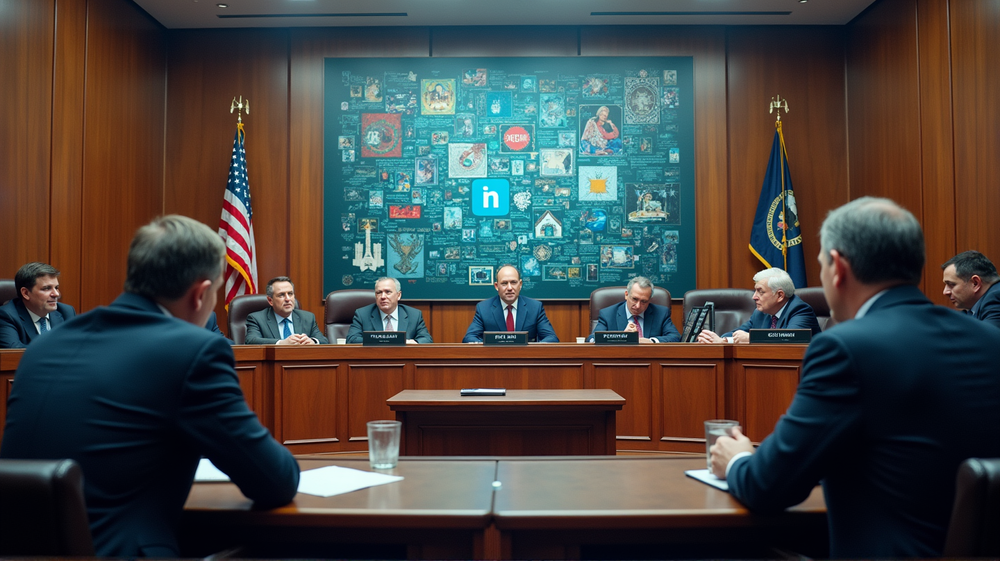Court Ruling on Social Media Disclosure: A Blow Yet a Spark for Future Challenge
A Tumultuous Path Toward Justice
In a recent development, the U.S. Court of Appeals for the D.C. Circuit delivered a mixed verdict on the contentious issue of visa applicants’ social media disclosure requirements. While the ruling maintains certain aspects of the district court’s decision, it also opens a small window for the continuation of legal challenges against the government’s extensive data collection policies. This crucial juncture could forge a new path for advocacy groups determined to protect the freedom of expression and privacy rights of individuals globally.
The Heart of the Dispute: Doc Society v. Rubio
At the core of this legal battle, the Doc Society, alongside the International Documentary Association, raised concerns about the infringement of filmmakers’ freedom of expression due to the State Department’s requirements. As a result, millions of visa applicants annually find themselves compelled to disclose their social media handles used over the past five years. The plaintiffs, represented by esteemed legal organizations, continue to argue that such a policy encroaches upon constitutional rights, with little to no added benefit in visa vetting processes. According to | Knight First Amendment Institute, this policy has faced strong opposition due to its potential repercussions on global artistic engagement.
A Controversial Policy Under Scrutiny
The contested disclosure requirement affects an estimated 14.7 million visa applicants yearly. Advocates argue that it leads to undue surveillance and potential targeting, disproportionately affecting those with alternative views. The policy also includes provisions for retaining this information indefinitely, raising alarms about its implications on privacy. Despite these challenges, the appeals court refrained from fully affirming the district court’s dismissal, potentially allowing plaintiffs an opportunity to amend their complaint and present further evidence.
A Call for Restraint and Reflection
Legal experts and civil liberties organizations remain vigilant, warning against the broader implications of such surveillance on freedom of expression. The case highlights the delicate balancing act between national security and personal freedoms, with the current legal framework showing vulnerabilities to potential misuse. “The requirement is arbitrary, capricious, and unconstitutional,” remarked Faiza Patel from the Brennan Center, underscoring a sentiment echoed by many.
Preparing for the Legal Road Ahead
Navigating Future Challenges
As the case reopens potential avenues for legal contestation, the involved legal teams stand ready to advocate for the dismissal of the disclosure requirement on grounds of constitutional infringement and violation of administrative principles. The case not only focuses on immediate privacy concerns but also serves as a symbol of resistance against perceived overreach, reaffirming the necessity of continually questioning governmental policies that may stifle free expression.
The battle for justice and transparency continues, with plaintiffs poised to advance new arguments aimed at reshaping the discourse surrounding privacy rights and government oversight in the digital age.




